 Everyone is unhappy about the reductions in hours at all 13 Sonoma County libraries. But there is some disagreement over other steps the library system might have taken to address a million dollar budget shortfall.
Everyone is unhappy about the reductions in hours at all 13 Sonoma County libraries. But there is some disagreement over other steps the library system might have taken to address a million dollar budget shortfall.
Melissa Kelly, chairman of the Sonoma County Library Commission, explains that the restructuring of library hours was done to cut nearly $250,000 in personnel costs for substitute workers.
Nobody likes the new library schedule, including Petaluma branch manager Doug Cisney, who says it creates hardships for library users.
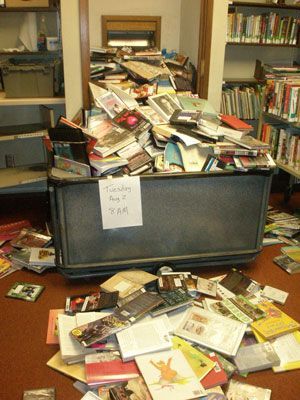
Deena Bliss, the "founding Mother" of Sonoma County Save Our Libraries, contends that both the library commission and the advisory boards at each local branch are unresponsive to public comments, and operate with a general lack of transparency.
These issues should get a full hearing at the next meeting of the Library Commission (now rescheduled to Sept 21, 6:30 at the Rincon Branch), where Bliss plans to deliver a sheaf of petitions calling for changes.
 Dirt consists of much more than mere minerals. That's why the most important parts of the plants we grow may be the underground root systems we rarely see. .
Dirt consists of much more than mere minerals. That's why the most important parts of the plants we grow may be the underground root systems we rarely see. .
 A soil profile such as this offers rarely seen information about how itstexture and content can become stratified and vareid.
A soil profile such as this offers rarely seen information about how itstexture and content can become stratified and vareid.
The addition of microbes and fungi does more than provide nutrients for the plants, explains David Perkins, a San Francisco-based farm and garden consultant. It actually modifies the structure of the soil itself.
 For serious gardeners and growers, Perkins adds, understanding soil biology offers myriad benefits.
For serious gardeners and growers, Perkins adds, understanding soil biology offers myriad benefits.
 The need for groceries from the Redwood Empire Food Bank is on the upswing, while federal support for their programs is moving in the opposite direction.
The need for groceries from the Redwood Empire Food Bank is on the upswing, while federal support for their programs is moving in the opposite direction.
One indicator of the depth of the lingering recession, says Redwood Empire Food Bank Executive Director David Goodman, can be seen locally in the demand for their summer lunch program for low income students.
 The local food bank and its 290 counterparts across the country have been actively lobbying members of Congress to defend funding for federal food support programs, but Goodman admits they sometimes feel overmatched in that effort.
The local food bank and its 290 counterparts across the country have been actively lobbying members of Congress to defend funding for federal food support programs, but Goodman admits they sometimes feel overmatched in that effort.
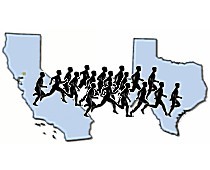 Conservatives often charge that California and its state government have an "anti-business attitude" that is driving record numbers of companies out of the golden state. But an impartial analysis of the actual numbers does not support that claim.
Conservatives often charge that California and its state government have an "anti-business attitude" that is driving record numbers of companies out of the golden state. But an impartial analysis of the actual numbers does not support that claim.
![]()
Bay area econmomist Jed Kolko (pictured below) is the author of Business Relocation and Homegrown Jobs, 1992-2006, published by the non-partisan Public Policy Institute of California. He updated that report inan op-ed piece in the San Francisco Chronicle in May, 2009.
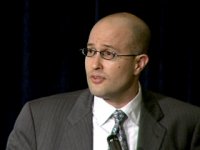
We hear a lot of complaints about the size of state government and the cost of doing business in California, but Kolko says the biggest problem is really California's business tax structure.
Not only do few businesses migrate into or out of California, but Kolko says there is not very much movement within the state either. And what there is doesn't travel very far.
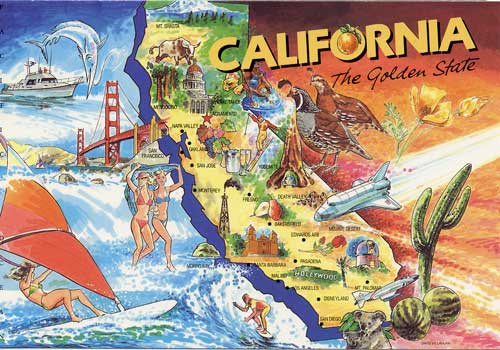
If only a small number of companies move between states, or between regions within California, Kolko suggests that local government and business groups that attempt to recruit these traveling firms are not pursuing a strategy with a high likelihood of success.
 The power of art to aid in healing grief is one theme of a documentary film about Petaluma's David Best, and the temples he creates for Burning Man.
The power of art to aid in healing grief is one theme of a documentary film about Petaluma's David Best, and the temples he creates for Burning Man.
 French filmmaker Laurent Le Gall focused his work on Petaluma artist David Best,who is known worldwide for the large and elaborate temporary temples he has designed and built at Burning Man. Voyage In Utopia (2008) tracks the creation and response to Best's "Temple of Honor" at the 2003 event. See two different views of the Temple below.
French filmmaker Laurent Le Gall focused his work on Petaluma artist David Best,who is known worldwide for the large and elaborate temporary temples he has designed and built at Burning Man. Voyage In Utopia (2008) tracks the creation and response to Best's "Temple of Honor" at the 2003 event. See two different views of the Temple below.


To see more of David Best's creations, click here.
.
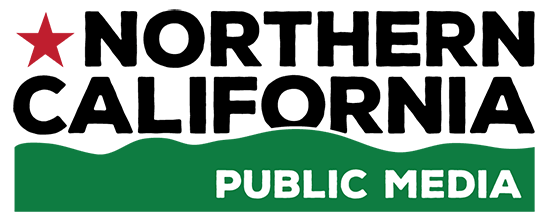
 Live Radio
Live Radio
